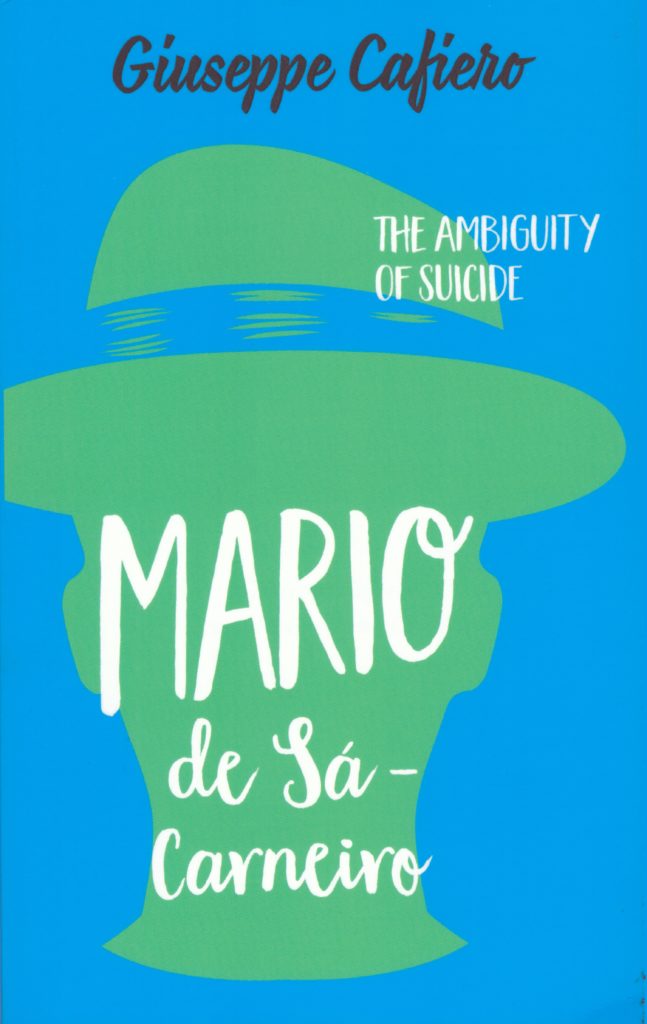Part biography, part historical travelogue and part detective story, this fictionalised investigation into the suicide of the Portuguese writer Mário de Sá-Carneiro is admirable on many levels.
Part of the acclaimed ‘Ambiguities…’ series by Italian author and playwright Giuseppe Cafiero, Ambiguity of a Suicide is an artful, intriguing meander through the mind of a gifted yet troubled soul.
Cafiero’s works are described by the author himself as works of ‘bio-fiction’, a type of metaliterature that plays with the blending of fact and fiction. This literary form is particularly effective in telling the story of de Sá-Carneiro, an acclaimed avant-garde writer of the early 20th century whose mind was muddied by his taste for strong alcohol and a desire to numb his sense of ‘saudade’ (a uniquely Portuguese word best translated as ‘melancholy’).
The word is key to the novel’s depiction of a man apparently tormented by feelings of inappropriate desires, of something ‘missing’ and of a general mournful malaise that could not be shifted by boozy nights in Lisbon and Paris, or dreams of making a new life in the Portuguese territory of Brazil.
The Ambiguity of Suicide follows the journey of de Sá-Carneiro’s close friend, fellow poet Fernando Pessoa; Mondine, a private detective; and Doctor Abilio Fernandes Quaresma, a ‘solver of enigmas’, as they retrace the tragic author’s footsteps in light of his recent death.
Together, they drink in his watering holes, eat in his favourite restaurants and talk to the characters that he came across before he took his own life in a desperate bid to shed light on the circumstances that led to his demise.
Cafiero effortlessly evokes the period and settings that shaped de Sá-Carneiro during his time in Lisbon and Paris, and there is a fitting sense of beautiful melancholy throughout the book, such as the following description: “Sea and salt air. Duino was then in his heart. A manor house corroded by time. White, skeletal, dried by the sun. Progenitor of imperial deaths. The ocean is another thing. Gusts of an Atlantic wind. Gazing at conquered lands. Lisbon”.
Following a trail that leads them into seedily sensual territories, the three characters come to understand a little more of Sá-Carneiro and his troubled mind,
but ultimately (and as the ‘ambiguity’ title suggests) they find there is never any simple answer to the ‘why?’ of a suicide.
The translation from the original Italian is extremely well done, but so too are the translations from the original Portuguese – the text is dotted with direct quotes from the writer and poet’s works, as well as from his friend Pessoa (best known for The Book of Disquiet).
It is perhaps fair to say that the works of Mário de Sá-Carneiro are little known outside of Portuguese-speaking countries. It’s also fair to say, however, that readers willing to engage with the unfamiliar will glean a lot of enjoyment from this novel and will probably find themselves eager to familiarise themselves with de Sá-Carneiro’s back catalogue after reading it.
Mário de Sá-Carneiro – The Ambiguity of a Suicide by Giuseppe Cafiero (Clink Street Publishing) is available from Amazon UK, priced £1.13 in paperback and £1.07 in Kindle edition. Visit www.giuseppecafiero.com.


